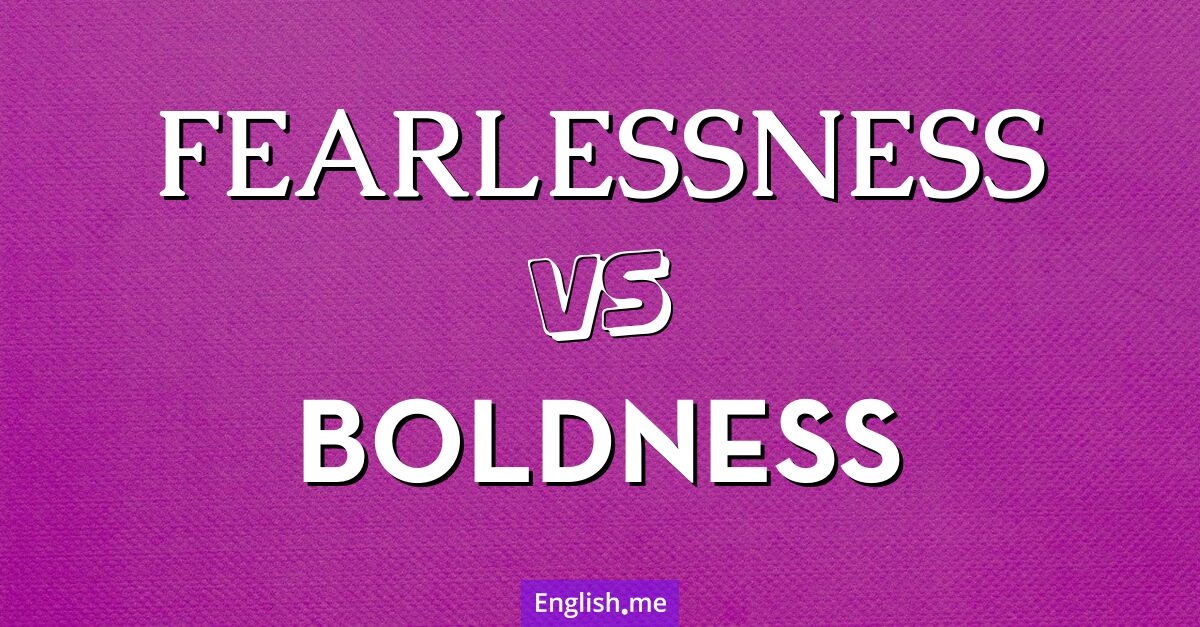"Fearlessness" vs. "boldness": navigating the fine line of courageous language
Reviewed and edited by  Lloyd Cooper 09/10/2024, 11:35
Lloyd Cooper 09/10/2024, 11:35
English.me team member

 What is similar?
What is similar?
Both "fearlessness" and "boldness" describe qualities of courage and the willingness to take risks. They both imply a lack of fear when facing challenges or dangers.
 What is different?
What is different?
Fearlessness implies a complete absence or disregard of fear in situations that are typically frightening, while boldness is more about showing a confident willingness to take risks, even if some fear is present. Boldness often suggests a proactive or assertive approach, whereas fearlessness can be more about internal disposition.
 Which one is more common?
Which one is more common?

 Examples of usage
Examples of usage
Fearlessness- Her fearlessness in the face of adversity inspired everyone around her.
- The firefighter's fearlessness allowed him to save the child from the burning building.
- His boldness in proposing a radical new idea took everyone by surprise.
- The artist's boldness in experimenting with new styles set her apart from her peers.

 English
English español
español française
française italiano
italiano deutsche
deutsche 日本語
日本語 polski
polski česky
česky svenska
svenska Türkçe
Türkçe Nederlands
Nederlands